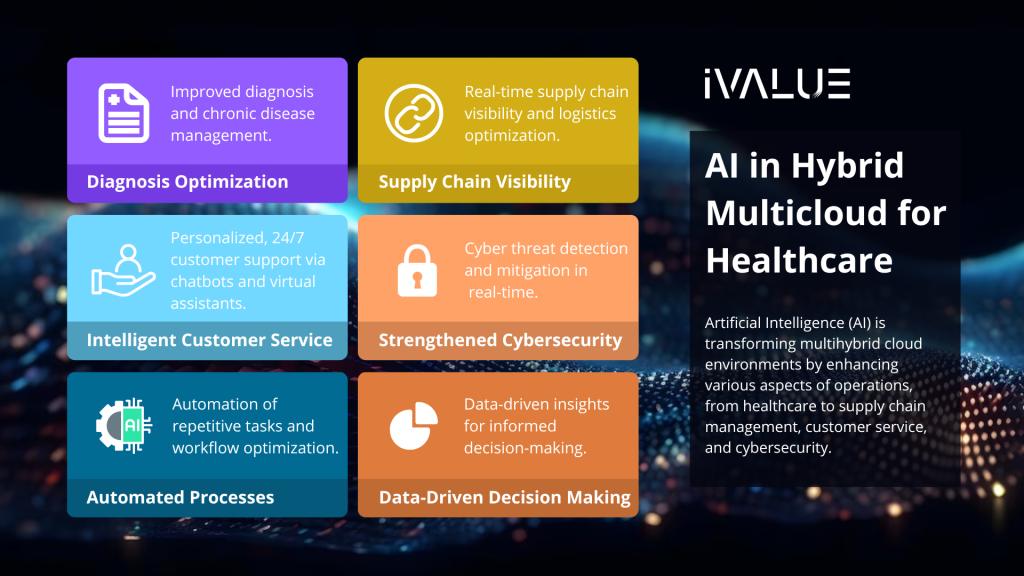The Hybrid Multicloud Transition
It’s the age of Hybrid Multicloud systems, and the healthcare industry is at a turning point in 2024. Organisations worldwide have slowly been migrating to cloud computing, opting to improve their scalability, agility, and cost efficiency. But this doesn’t mean that there’s a one-size-fits-all approach to cloud computing.
Healthcare comes with unique, diverse requirements that have pushed the IT leaders in the industry to opt for hybrid multicloud models. Whether the industry is running AI/ML workloads and complying with data privacy mandates, or enabling seamless clinical collaborations, these tailored hybrid multicloud models allow optimisations of the right cloud for the right workload.
The 2024 Nutanix Enterprise Cloud Index Report which surveyed 1,500 IT decision-makers globally shows that the adoption of hybrid multicloud IT operating models has hit an inflexion point in the healthcare sector this year.
Deployments that combine private on-premises data centres with two or more public clouds have surged, jumping 10 percentage points year-over-year from just 6% penetration in 2023 to 16% in 2024 among healthcare respondents.
This level of implementation exceeds the cross-industry global average of 15%, representing a dramatic turnaround from when healthcare ranked among the lowest of all sectors for hybrid multicloud usage in 2023.
Cloud-Smart Philosophies Drive Flexibility
What truly enabled the accelerated hybrid multicloud embrace is the understanding that a holistic, cloud-smart approach provides the flexibility to optimize performance, security, compliance, and cost management based on the unique requirements of each application and dataset.
Healthcare organisations are slowly starting to subscribe to cloud-smart philosophies of leveraging the best cloud for each workload, rejecting the rigidity of prior cloud platform philosophies.
This agile approach empowers healthcare IT teams to dynamically shift workloads to the environment best suited for their current needs, whether that is taking advantage of a cloud provider’s unique capabilities, pricing structures, localized data residency policies, or quickly responding to evolving compliance and security requirements.
AI in Hybrid Multicloud Environments
AI presents both significant opportunities and obstacles for healthcare organisations adopting hybrid multicloud models. The data shows that these organisations see hybrid multicloud models as a catalyst for leveraging cutting-edge AI/ML capabilities to drive tangible impacts like improved patient outcomes, operating efficiencies, and enhanced clinical decision support.

Multi-Cloud Data Governance and Compliance Pains
While promising major benefits in AI, analytics, and unified patient data views, hybrid multicloud models also bring significant data governance and compliance challenges that healthcare IT teams must navigate. Keeping data secure, compliant and readily accessible proves to be one of the core multicloud challenges facing healthcare IT teams. The most important among these are the difficulties in coordinating data policies and ensuring adherence to regulations like HIPAA and GDPR when information stores and applications reside across disparate private and public cloud environments.
Beyond data governance and compliance challenges, healthcare IT teams are dealing with various hybrid multicloud complexities and requirements.
- AI challenges: Training effective models requires high-quality data, often in massive quantities, which can be challenging to obtain. With the increasing data demands of AI, information management is complex. And with all technology there’s the risk of adversarial attacks, where malicious actors attempt to manipulate AI models for their own gains.
- Visibility: Achieving visibility into where data resides across different private and public cloud environments.
A unified view and monitoring capabilities ensure that data can stay safe from becoming siloed and fragmented, affecting insights and decision-making. - Transparency: Silos and disconnected IT operations become an issue. Managing infrastructure silos and bridging the disconnected IT operations between on-premises and cloud teams can help maintain clarity and transparency.
- Compliance: Ensuring regulatory compliance like HIPAA and GDPR across hybrid multicloud systems. Working with a cybersecurity team that is skilled in compliance ensures that healthcare organisations run without a hitch.
- Security: Malware, ransomware threats, and data security concerns overall are concerns for every industry, healthcare included. Investing in a robust and multi-faceted cybersecurity system will easily mitigate these concerns.
- Costing: Controlling and optimising cloud costs is another significant hybrid multi-cloud pain point. As application portfolios and data become more distributed across multiple clouds from various providers, budgets and clear plans can ensure that you monitor your spending, resolve waste, and forecast future expenses. Investing in a robust hybrid multicloud system also ensures that you have unified visibility of costs, greater savings, proper resource allocation, and reduced wastage of resources and investments.
- Sustainability: The impact of environmental and sustainability mandates is also felt by healthcare IT departments as they evolve their hybrid cloud strategies. Initiatives like enabling remote work to reduce travel emissions, monitoring carbon footprints, and modernising eco-friendlier IT infrastructure ranked as top priorities over the past year.
Despite the other challenges, keeping data secure, compliant and readily accessible proves to be one of the core multicloud challenges facing healthcare IT teams. Working with competent and well-trained teams can ensure that organisations can overcome all these obstacles with ease. Seeing as the benefits outweigh the obstacles and challenges, investments are flowing with healthcare organisations increasing AI budgets over the next year to capitalise on the technology’s potential applications across the care continuum.
The Compliance pain points in Healthcare:
- Following data storage/usage guidelines
- Linking data across multiple cloud environments
- Data security concerns
- Combating ransomware threats
- Suffering ransomware attacks that cripple operations
- Lengthy restoration times after ransomware incidents
- Protecting against general malware
- Ensuring regulatory compliance like HIPAA and GDPR across hybrid clouds
Designing a Holistic Hybrid Multi-Cloud Architecture
The multiple challenges indicate the need for healthcare organisations to approach their IT environments with unified governance, security controls, and data management from the beginning rather than as an afterthought. The research findings from Nutanix’s report reinforce this, showing 57% of healthcare respondents now claim all their IT operating environments are fully interoperable – a marked 17 percentage point improvement over 2023 that correlates with the growing availability and adoption of integrated, cloud-agnostic management platforms.
Industry experts also predict containerization to play an increasingly important role in enabling hybrid multicloud interoperability and application portability going forward. The report also shows containerization initiatives are well underway in healthcare, with 58% having containerized at least half their application portfolios already.
Hybrid multicloud will emerge as the new IT architecture for healthcare over the next three years, making it important to design and implement that architecture correctly to ensure the difference between success and stumbling.
Reach out to us today to work on a holistic approach that accounts for seamless workload mobility between clouds, unified data governance and security enforcement, cost optimization, and consistent operations.
